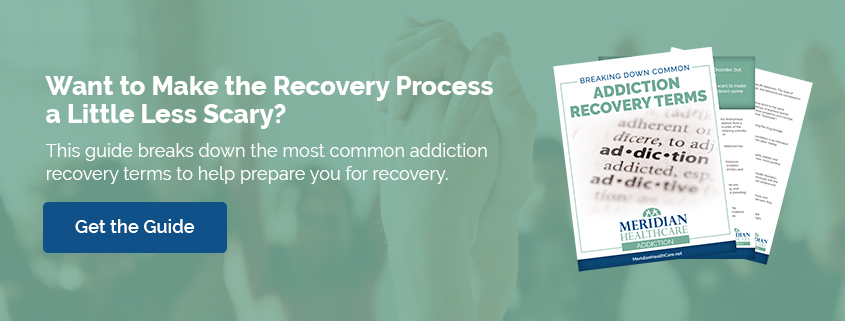What Is Addiction — and How to Get Help
What is addiction? It’s a serious condition that can affect all aspects of your life, including your relationships, work, and hobbies. It affects both the brain and behavior. When you hear the word “addiction,” you might immediately think of drug abuse and alcohol addiction. However, it doesn’t begin and end with drug addiction.
Addictions come in many different forms, including alcohol, drugs, gambling, gaming, or eating disorders. It’s more than just a craving; addictions affect self-control and often have other harmful consequences.
Definition of Addiction
The National Institute on Drug Abuse (NIDA) has defined drug addiction as “a chronic, relapsing disorder characterized by compulsive drug seeking and use despite adverse consequences.”
The American Psychiatric Association (APA) adds that addiction has biological, psychological and environmental factors affecting its development and maintenance.
Because there are more addictions than just drug abuse, the American Society of Addiction Medicine (ASAM) defines addiction as “a treatable, chronic medical disease involving complex interactions among brain circuits, genetics, the environment, and an individual’s life experiences.”
Causes of Addiction
Addiction is a disease, meaning that genetic risk factors predetermine the likelihood of someone forming an addiction. Similar to other mental health disorders, this health condition becomes a problem when it affects the person’s daily life and relationships.
Most people develop an addiction because the drug, substance, or activity produces dopamine. A large amount of dopamine creates a euphoric reaction, so the person continuously tries to recreate that good feeling.
While addiction can be present in family history, it can still be hard to spot the signs of addiction in yourself or loved ones. A person who is addicted will often feel an overwhelming urge to use a substance or participate in addictive behavior even when they know the negative consequences that are involved (or fail to realize they’re doing it).
When it gets to the point that a person relies on addictive substances to function, it’s important to speak with a mental health professional trained in addiction treatment.
Effects of Addiction
The effects of addiction are far-reaching and can impact every aspect of life. In addition to the personal toll, addiction has a profound negative impact on family members and loved ones.
Physical Effects
Addiction causes many negative physical effects on the body, which can worsen over time. It can damage various organs (ex. lungs and liver), increase the risk of infection (like HIV) from intravenous drug use, disrupt sleep patterns and can even cause sleep deprivation (which often connects to depression).
Addiction can also lead to poor nutrition when drug use causes a lack of appetite or inability to buy food. Frequent alcohol or drug abuse can also weaken the immune system.
Mental Effects
Addiction is often present with other mental health conditions, frequently in conjunction with mood disorders like anxiety and depression. Prolonged substance abuse negatively affects different areas of the brain and can lead to cognitive impairment, causing memory loss, as well.
Since sleep is often connected with mental wellness, addiction can also negatively impair mental health if it disrupts sleep patterns.
Addiction Treatment Options
The first step in overcoming addiction is seeking help. Whether it’s talking to a friend or family member, seeing a therapist, or attending an addiction group meeting, there are many ways to find support. Treatment approaches can vary; the best treatment plan is the one that is consistent — and consistency looks different for everyone.
Withdrawal Management Program (DETOX)
With a detoxification treatment program, patients detox from drugs or alcohol under the care of mental health and medical professionals. Withdrawal symptoms can be severe, so 24/7 medical and peer support are available with this service.
Detox is especially helpful for those experiencing withdrawal from opioids, methamphetamines, painkillers and other intense stimulants, and a typical detox treatment program usually lasts between three and seven days.
Intensive Outpatient
Addiction recovery doesn’t always mean inpatient detox. Intensive outpatient treatment programs focus on providing education on the recovery process, promoting healthy alternatives and developing a sober recovery support system.
An outpatient treatment program lets patients remain at home and attend work/school while still getting the support needed throughout the rehab process. There can be several components to this type of treatment, so a counselor will work directly with you or your loved one to create a customized continuum of care.
Residential Inpatient Treatment Program
For some, a structured, residential program works best. It’s often used by individuals who need intensive treatment and more support than they can receive if they stayed at home.
A typical day in residential treatment would include group therapy, individual counseling, educational sessions, and 12-step meetings while also setting aside time for reflection, recreation, wellness and fellowship. Most residential treatment plans range between 30 and 45 days.
Medication-Assisted Treatment Program
Medication-assisted treatment (MAT) benefits those struggling with opioid addiction, such as heroin, morphine and other prescription medications. Patients in MAT will undergo random urine drug screens and participate in intensive counseling sessions (and other activities to help with successful treatment).
There are currently three therapy options approved by the U.S. Food and Drug Administration for opioid addiction treatment: methadone therapy, suboxone therapy, and Naltrexone/Vivitrol therapy. Each option has its own admission criteria, so treatment program health professionals will be able to suggest the most appropriate treatment option for your unique situation.
Mental Health Services/Counseling
Substance use disorder is a chronic disease often associated with other mental health conditions. Whether or not an additional mental illness is present, mental health services and counseling can make a great difference in addiction recovery.
Counselors and mental health professionals can create personalized treatment plans following individual, patient-centric counseling. Counseling can help the patient lessen dependency while improving mental health, and depending on the patient’s needs, treatment plans may include behavioral therapy, psychotherapy, and group sessions.
With Addiction Treatment, Recovery Is Possible!
Addiction is a disease and should be treated just like any other illness. So, what is addiction exactly? It can look different for everyone! Addiction could mean drug use, alcohol abuse, or even behavioral addictions like gambling.
The important thing to remember is that no matter the addiction, there is hope for recovery. At Meridian HealthCare, we’re ready to help. If you or a loved one needs treatment, call our care team today.
For more information on related topics, check out our blog page.
*If you or a loved one are experiencing a crisis situation, please call 9-1-1.






